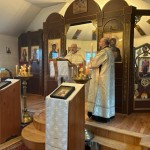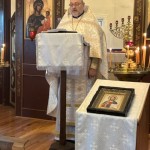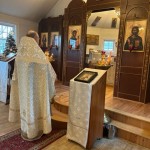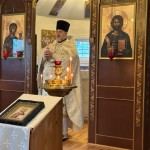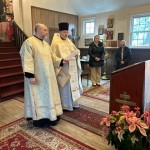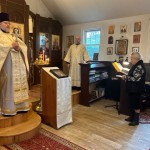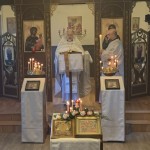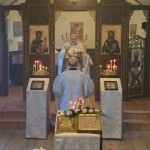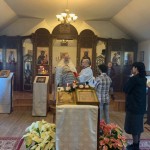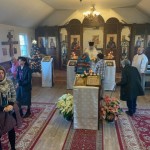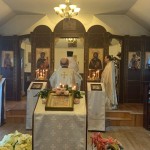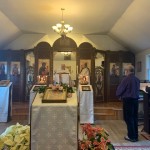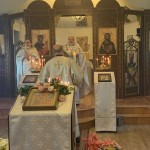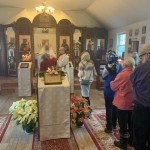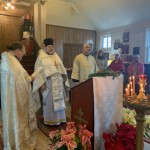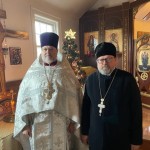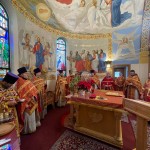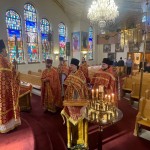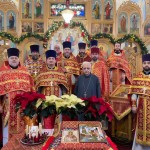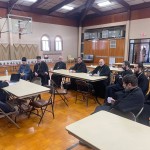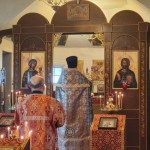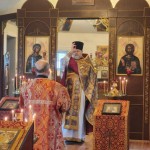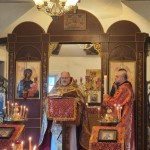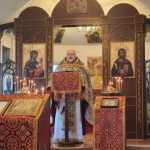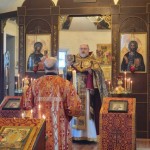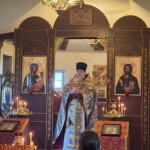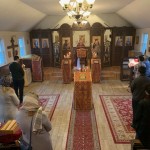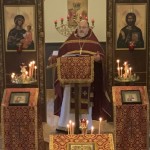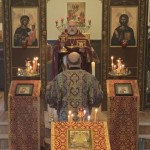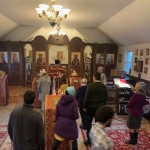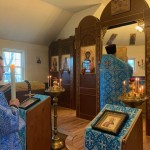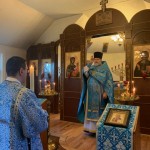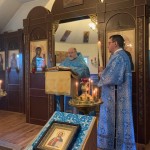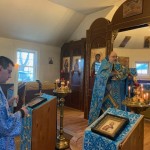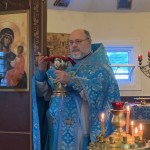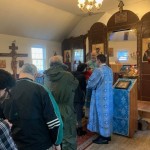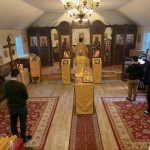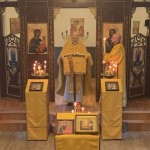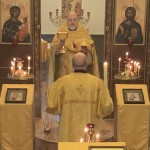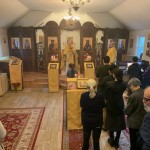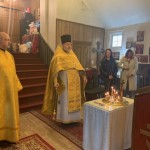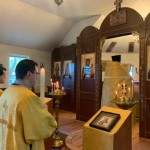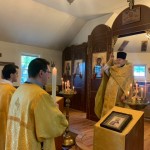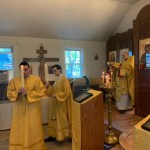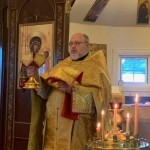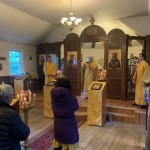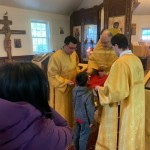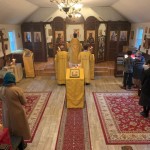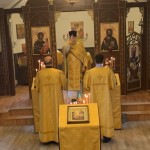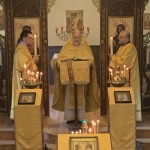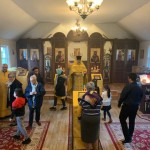On Saturday, January 14, our parish celebrated great holy day of the Circumcision of the Lord and feast of St. Basil the Great. The Divine Liturgy in our temple was served by our Rector, Archpriest Igor Tarasov. Following the readings from the Sacred Scripture he preached the following homily:
“Dear brothers and sisters in Christ! Today we have a combined celebration. On this day we celebrate Circumcision of our Lord Jesus Christ, as well as commemoration of St. Basil the Great. In addition, many of us remember that today is the civic New Year, so-called the “Old New Year”. First of all, let me tell you that the New Year’s Day is not so important for the Church celebrations. It is not even something absolute or unchangeable. The New Year in Byzantine Empire was on September 1, the way it is still observed in our Church calendar. Our ancestors, ancient Slavs celebrated their New Year on March 1. It was rather Western European custom to begin the New Year in January, as we do now. This is why the New Year’s Day is not so important in the Church than celebration of other, more religious feasts”.
“Our authentic Christian and folk tradition knows three winter holy days celebrated on the row: Nativity, Circumcision and Baptism of Christ. And the period of their celebration is called “Sviatki” in Russian tradition. Today we are in the very middle of that festal period. We just finished celebrating Christmas and are preparing to celebrate Theophany. Between those great holy days we have today’s feast of the Circumcision. Sometimes we may hear that our people are wandering why we, the Christian Church, celebrate the Circumcision of Christ, since we don’t practice circumcision”.
“To answer that question we should look at all these three winter holy days as connected and proclaiming for us one great message: God became Man, God came to the world; He did it to save mankind. This is why Nativity and Baptism of Christ used to be celebrated on one day and was called the Theophany. This was done in the Ancient Church, but later the Church decided to introduce a separate feast of the Nativity to replace a popular pagan celebration in honor of the sun. Therefore, the idea of both Christmas and Theophany is that God became Man, appeared to the world to save it. And becoming Man, He had to follow the rules given by God Himself to the men. One of those rules was to circumcise male children after 8 days of their birth. This was in the Covenant between God and Abraham and this was in the Law of Moses. And Child Jesus had been circumcised on the 8th day of His birth. It took place, and we commemorate it. And this commemoration teaches us to follow the rules of the Church. Jesus followed the rules of the Old Testament Church although He was to establish the Church of the New Testament. So we should now obey all the rules of our Church. The Saint whom we honor today, St. Basil the Great, was, by the way, a prominent maker of the different Church rules. His memory today also reminds us of those important things”.
“Today’s feast offers us a great mystery to reflect on: Infinite and Eternal God becomes a little Child and does not despise to be circumcised. But keeping in mind His future, we understand that Jesus also did not despise to be crucified. Thus, circumcision was only the beginning of His humble service and sacrifice for the human race. Today’s hymn calls Jesus an “eight-day-old by Mother and beginningless by Father”. This is the mystery of our faith: a beginningless and endless God becomes a Man, He condescends to our nature to save it. This is why today’s troparion says, “glory to Thine Providence, glory to Thine condescendence, o only Lover of mankind!”
“This is why, dear brothers and sisters, we celebrate today’s feast. And again, it is not a separate feast but a part of our wonderful celebration of the Incarnation of the Lord. Therefore, let us pray that our Lord Jesus Christ through the prayers of the Holy Father Basil the Great grant us His abundant blessings in this festal season and in this New Year, so it will be spent in piety and pleasing God who came to save us!”
The choir performed hymns of the feast during preparation for Holy Communion.
After the dismissal of the Liturgy the Rector and the altar server performed the rite of glorification singing the troparia, kontakia and magnifications of the Circumcision and of St. Basil the Great.
Parish Warden and Choir Director, Olga Roussanow greeted the Rector on his birthday wishing him good health and a long service to the Holy Church. Tradition Polychronion was proclaimed to Fr. Igor.

